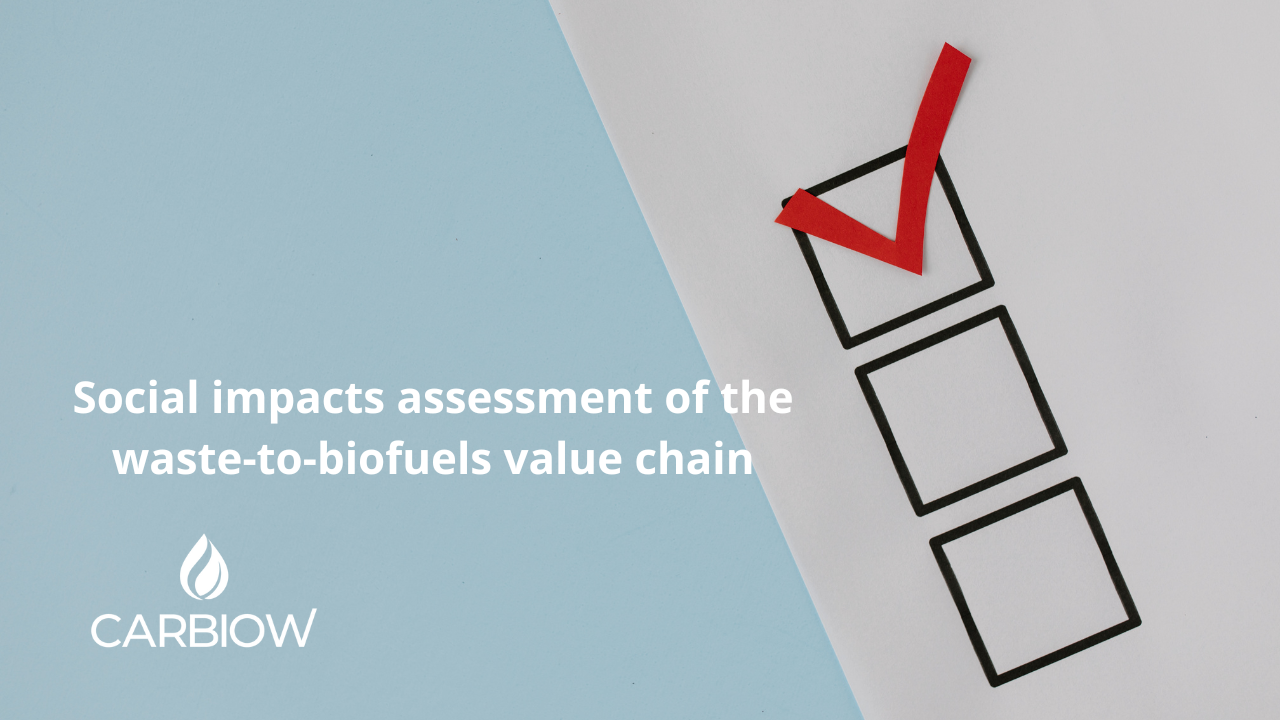
As part of the CARBIOW project, the Aachen-Maastricht Institute for Biobased Materials (AMIBM) has launched a survey to identify which social indicators stakeholders consider most important for assessing the social impacts of the waste‑to‑biofuels value chain, from collecting waste streams, converting them into biofuels, and distributing those fuels, to managing by-products and end-of-life residues from the production process.
“We are looking for your own perspective, whether you are a worker, consumer, supplier, local resident, or broader stakeholder within this value chain. Your input helps us set priorities in social indicators, which are the measures or statistical time series that are used to monitor the social conditions, societal well-being, and quality of life”, explains Michelle Gian, PhD researcher at the Aachen-Maastricht Institute for Biobased Materials (AMIBM) and responsible for the social and environmental pillars.
Since AMIBM is at the end of the value chain, their main challenge in the CARBIOW project would be to connect all the results and streamline them for the sustainability assessment.
“At AMIBM we are dealing with the complexities of the social life cycle assessment (SLCA) method used for the CARBIOW project. SLCA is crucial for evaluating the social impacts of a product throughout its life cycle, from raw material extraction to disposal. However, it faces several challenges that make it difficult to implement. Firstly, the method is not standardised, which leads to inconsistencies in how social impacts are assessed across different projects. Secondly, SLCA often relies on qualitative data, making it more subjective compared to the quantitative data used in environmental LCA. Moreover, unlike Environmental Life Cycle Assessment (LCA), SLCA has fewer comprehensive and universally accepted databases for characterization or impact factors”, she stated.
LINK TO THE SURVEY FORM: https://maastrichtuniversity.eu.qualtrics.com/jfe/form/SV_8D0ctgoo7f8LrKe
Responses are anonymous and not individually traceable; results will be reported only in aggregate and will be accessible solely to the research team (Michelle Gian, Dr Arij Mohamad Radwan Omar Chabrawi, Dr Svetlana Obydenkova, Prof. Yvonne van der Meer).
If you have any further questions, don’t hesitate to contact Michelle Gian at michelle.gian@maastrichtuniversity.nl.